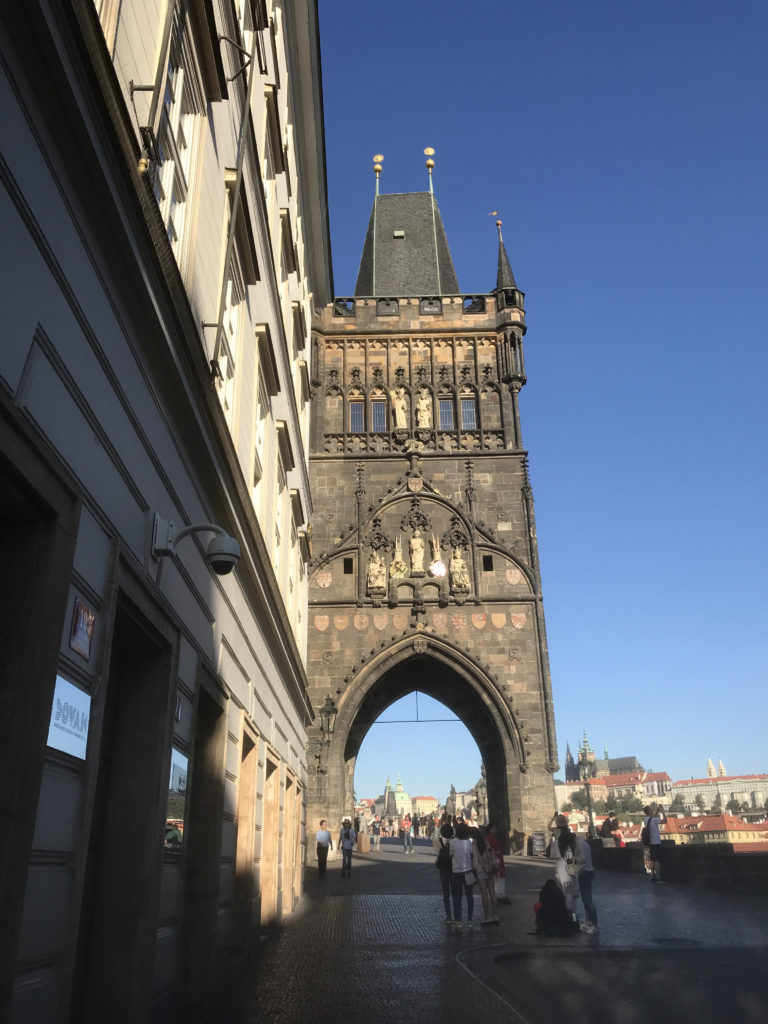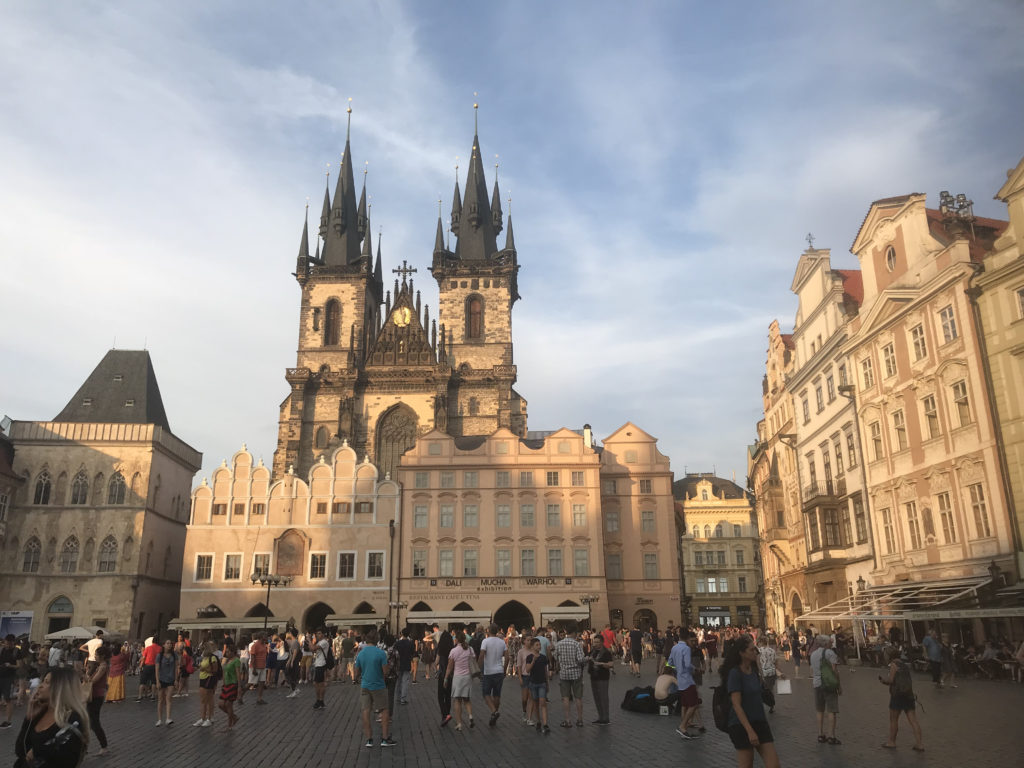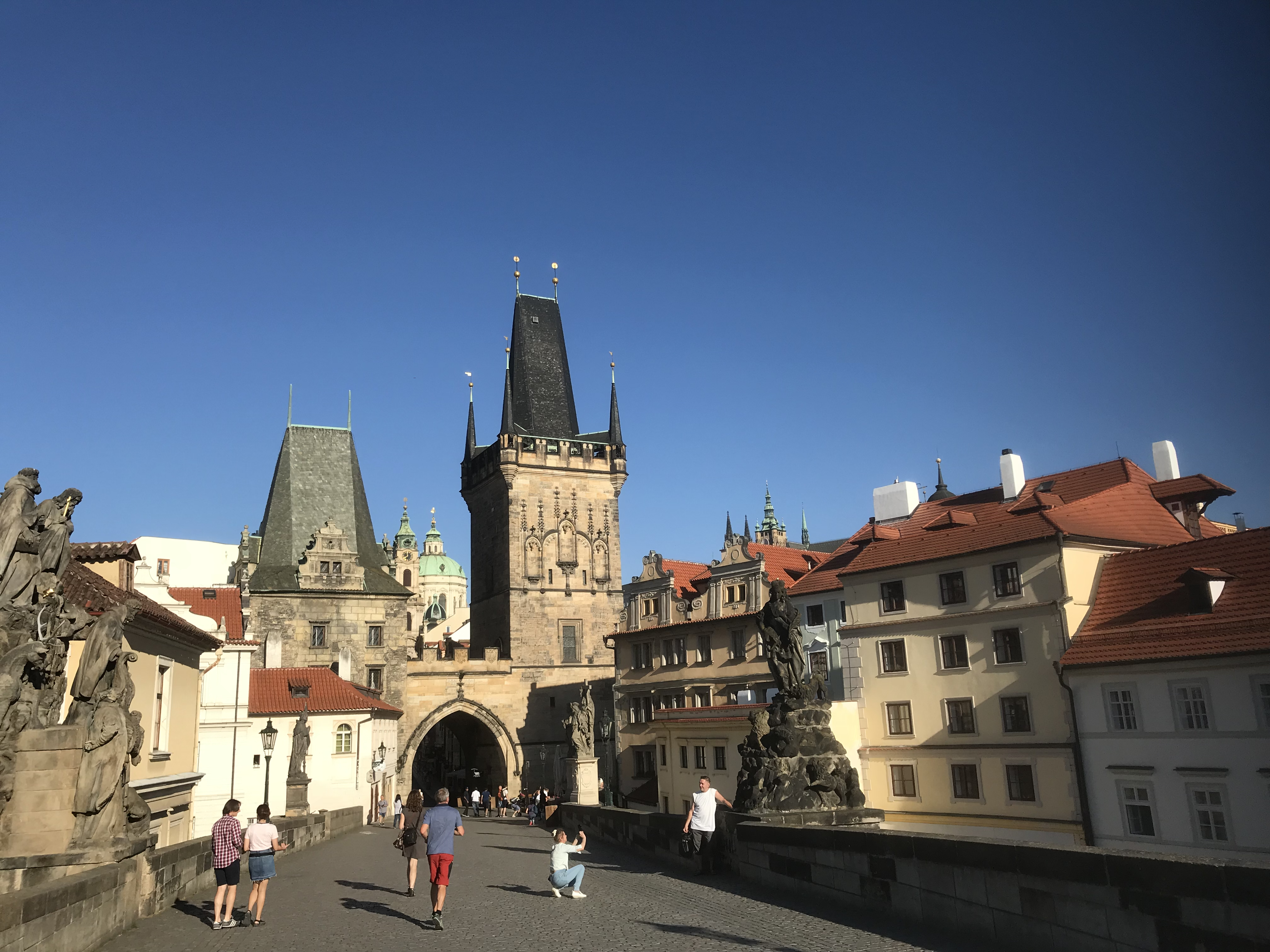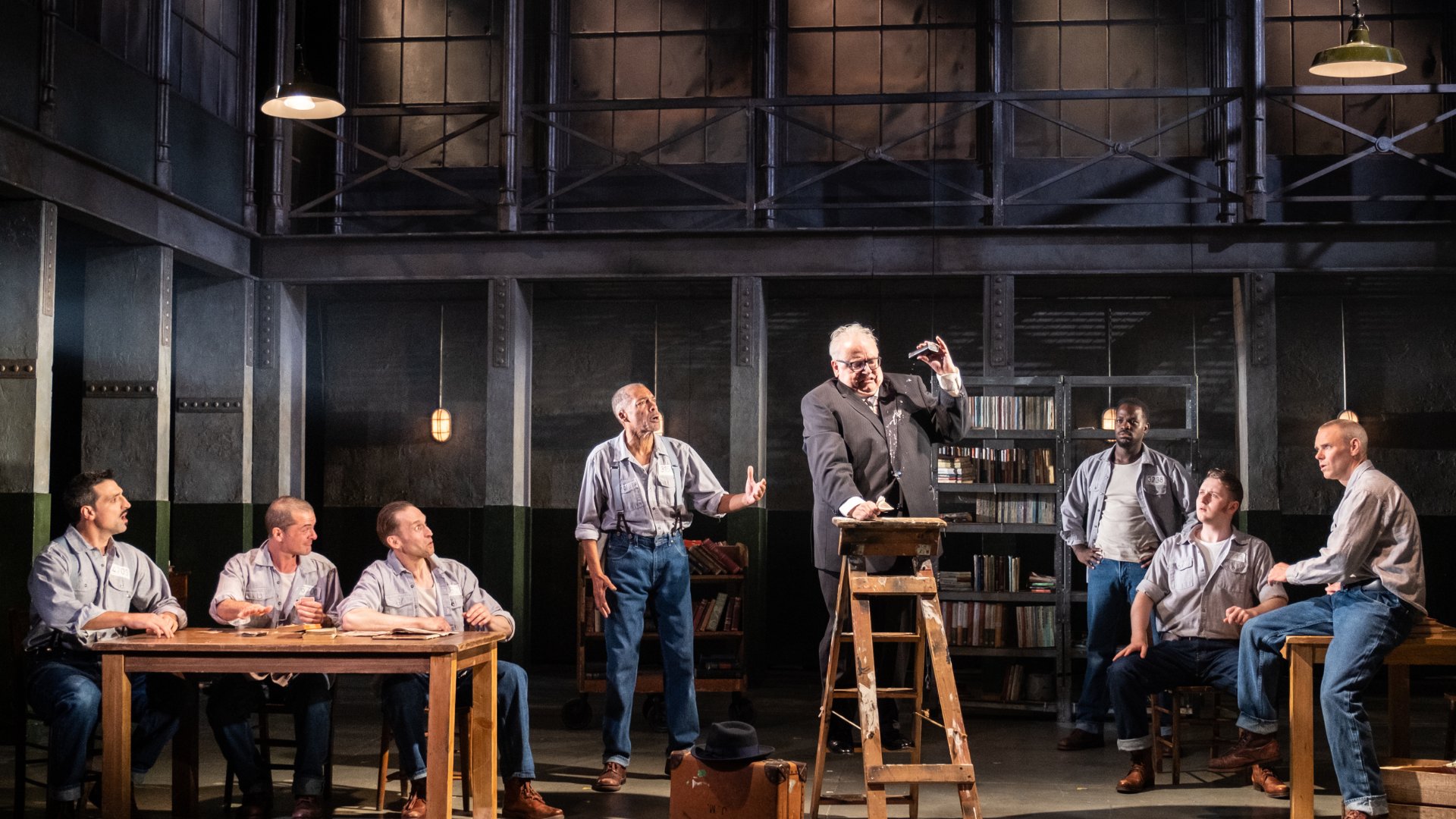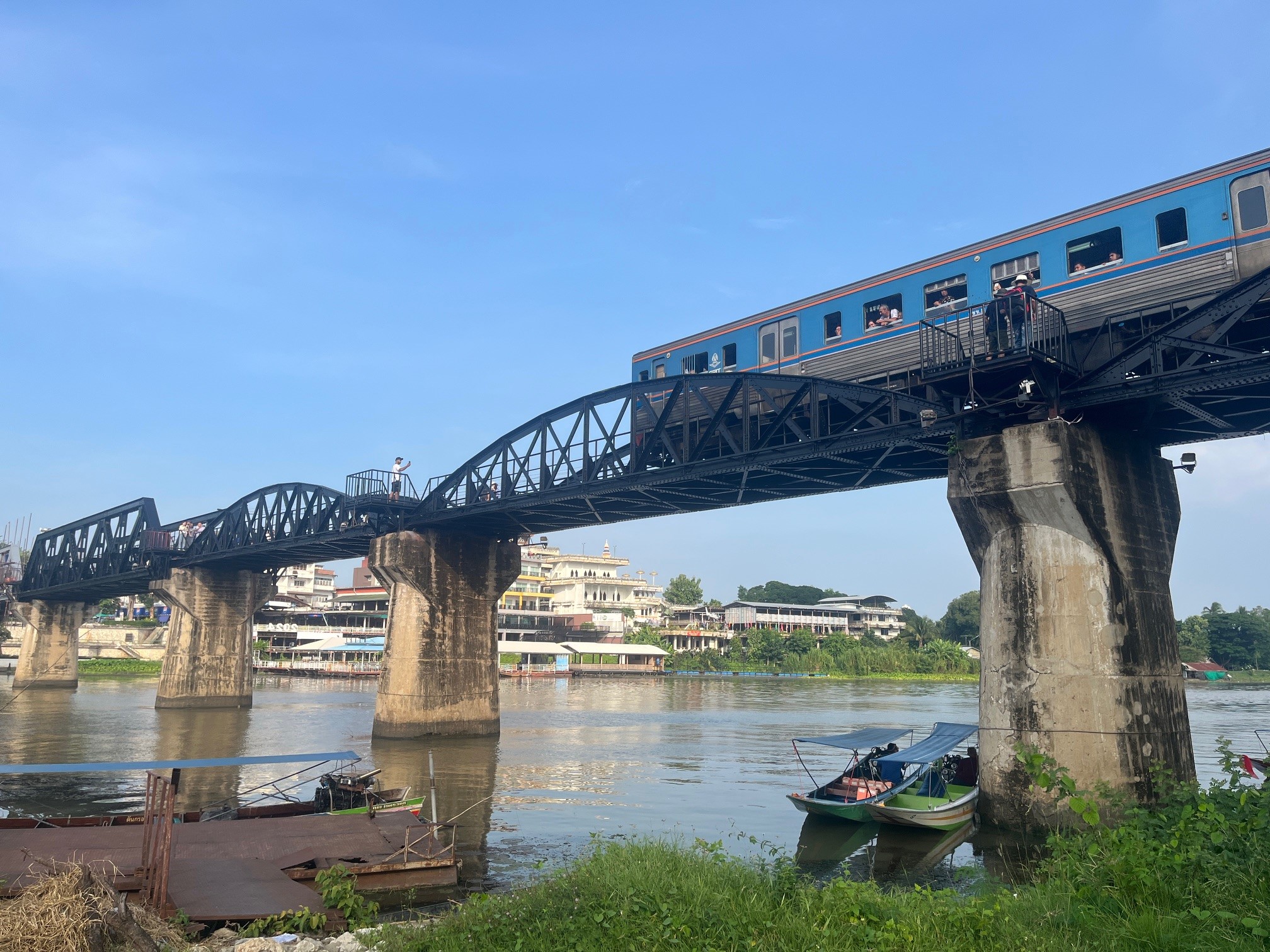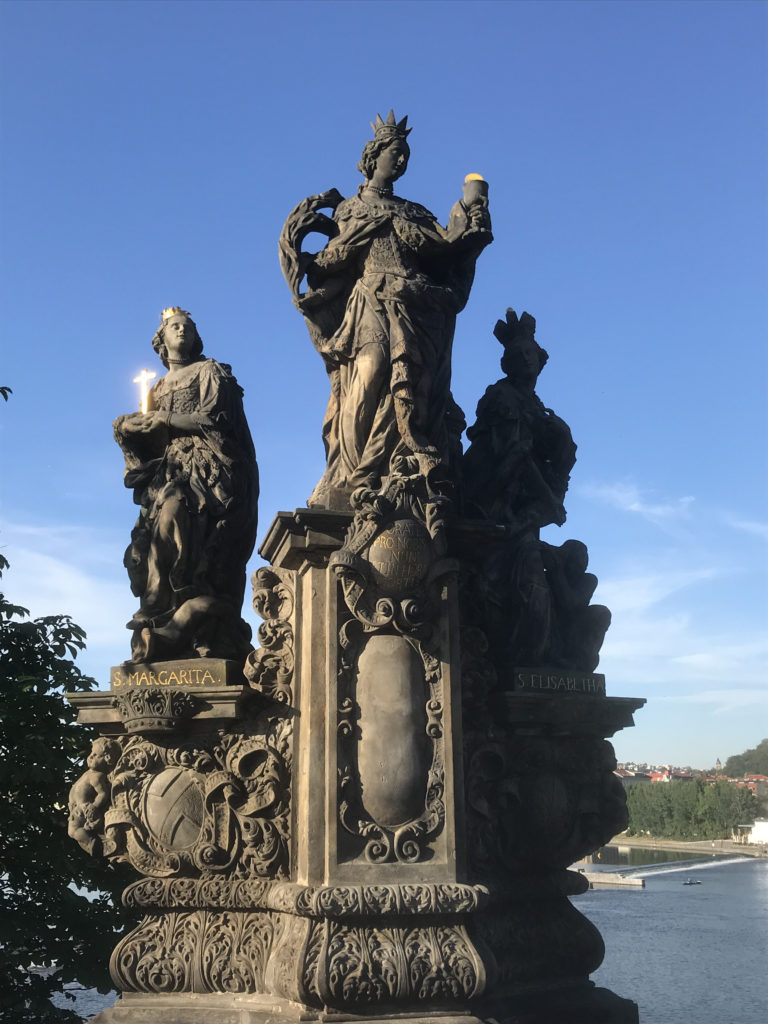
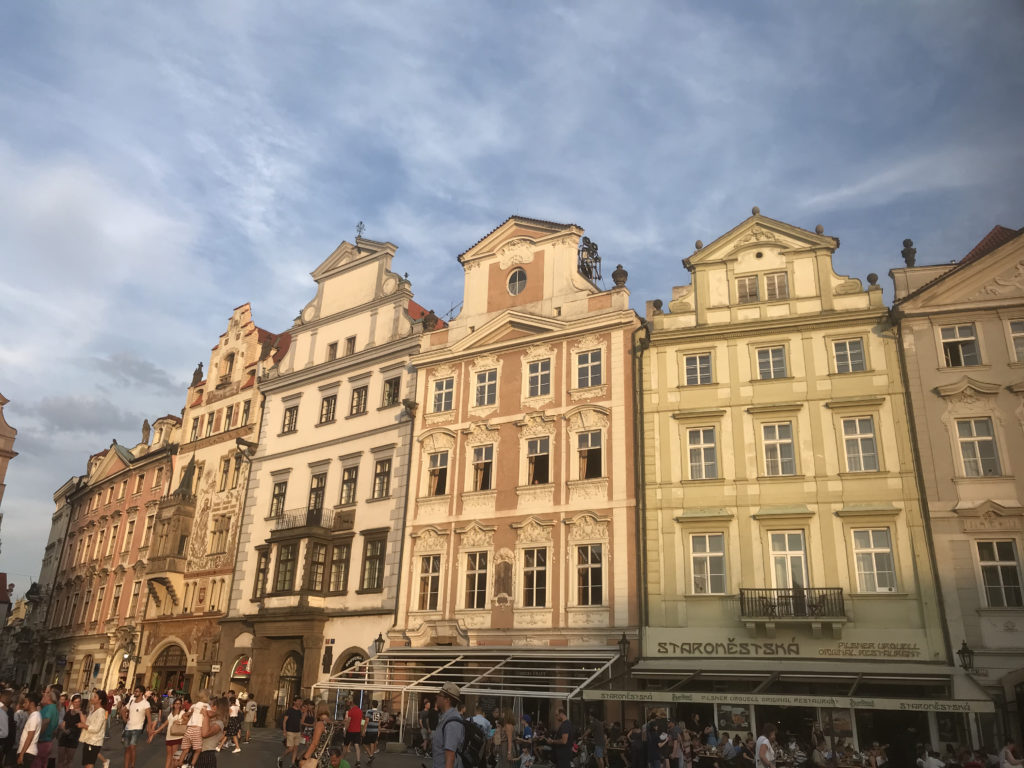
I visited Prague for the first time in the summer of 1989, a few months before the opening of the Iron Curtain. I remember one evening when we were walking on the Charles Bridge – which was not yet overcrowded by tourists: a group of young musicians was playing some Beatles songs accompanied by a guitar and a few people, including us, gathered around them. Suddenly two policemen opened their way into the circle and stood in front of the musicians. A brief but strong kick in the sole of the guitarist who was sitting under one of the bridge’s statue was enough to convey the message: time to stop. The guitarist slipped his instrument in his case, the bystanders disbanded. It was ten o’clock. Was it the curfew? Was street music prohibited? I don’t know, but I saw this small event as a symbol of the lack of freedom in Eastern Europe.
I went back to Prague this summer. The city is still splendid around the Vltava or seen from the Castle’s hill. As often, I went walking very early to take advantage of the morning light and avoid the tourists’ hordes. In the afternoon we visited in the Old Town Hall a very nice exhibition of pictures commemorating the 50th anniversary of the crushing of the Prague Spring by the Soviet tanks in August 1968. The period black-and-white photographs immediately brought back the memory of « The Unbearable Lightness of Being », both Milan Kundera’s novel and its adaptation for the cinema, in particular the scene where Tereza gets her camera to take pictures of the Soviet invasion.
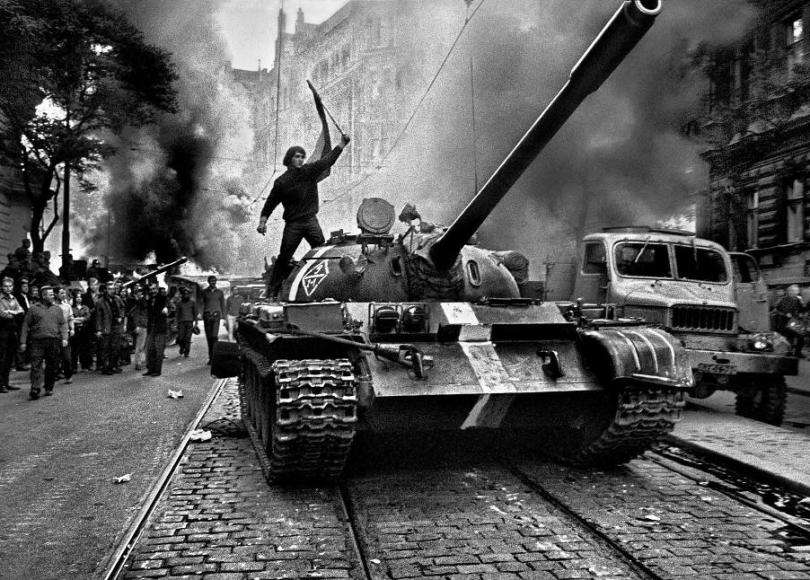
Kundera’s novel, published in French one year before the original Czech version, is set at the time of the Prague Spring but it goes beyond its historical context. It is written around a love triangle including Tomáš, a surgeon, a brilliant intellectual but a womanizer, Tereza, a young country girl who manages to marry him without however being able to prevent his affairs and Sabina, one of his earlier mistresses, an artist who enjoys playing with seduction. The story highlights those moments when life oscillates between heaviness and lightness, love and frivolity, indifference and revolution. After the Soviet invasion, Tomáš and Tereza go in exile in Switzerland where they find Sabina. But Tereza is homesick and goes back to Czechoslovakia despite the heavy hand ruling her country. Thorn, Tomáš decides to return to his wife, even though he loses his job because of his past as a dissident and ends up on a ladder cleaning windows. A window cleaner who cannot help seducing the stay-at-home women…
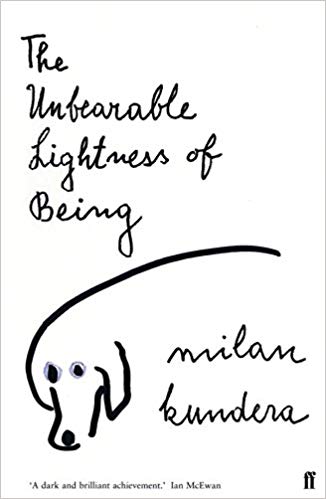
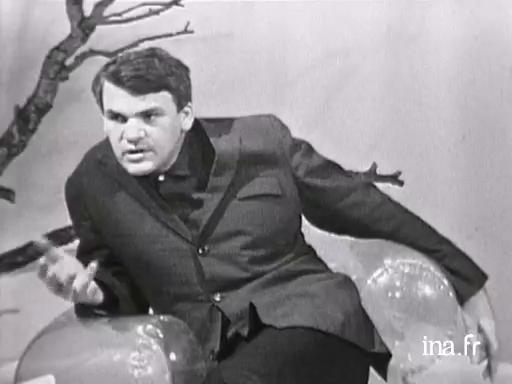
Kundera’s book thus balances with virtuosity between an exciting story and a philosophical – but never heavy -reflection about life. It is a masterpiece which I recommend reading or reading again, in Prague or elsewhere.
